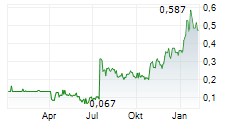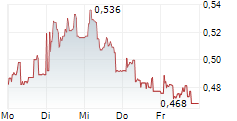LUND, SE / ACCESS Newswire / April 28, 2025 / Cantargia (STO:CANTA)
Preclinical data shows IL1 family signals mediate systemic immune suppression.
Blocking IL1RAP can overcome resistance to immune therapy in a cervical cancer model.
Clinical findings from nadunolimab studies reflect these preclinical effects of IL1RAP blockade and suggest translatability to clinical benefit.
Cantargia (Cantargia AB (publ); Nasdaq Stockholm: CANTA) today reported the publication of preclinical results in the renowned scientific journal Cancer Discovery, demonstrating that targeting IL1RAP can effectively inhibit tumor-induced systemic immune suppression in cancer by counteracting immune suppressive myeloid cells. This data is strengthened by nadunolimab clinical data showing a reduction of these cells after nadunolimab treatment. The data is published by Professor Douglas Hanahan's research group at the Lausanne Branch of the Ludwig Institute for Cancer Research and the Swiss Institute for Experimental Cancer Research (EPFL).
"Immune therapy has revolutionized cancer treatment but is still hampered by resistance mechanisms that counteract anti-tumor immune activation. Professor Hanahan's work shows how a tumor can use innate immune mechanisms to induce systemic immune suppression. These signals converge on IL1RAP and can be blocked in preclinical models by a nadunolimab surrogate antibody, overcoming resistance to an anti-tumor vaccine. The data is strengthened by clinical data from nadunolimab studies and strongly emphasize the broader potential of nadunolimab in cancer treatment." said David Liberg, Chief Scientific Officer of Cantargia .
Cancers escape the body's immune response by creating an immunosuppressive environment around the tumor. Beyond the local immunosuppression, cancers can also elicit systemic immunosuppression, whereby lymphoid organs and immune cells are conditioned to restrict anti-tumor immunity, further weakening the anti-cancer responses by the immune system. Using a cervical cancer model, the research group led by Professor Douglas Hanahan identified the IL-1 family of cytokines as major contributors to systemic immunosuppression, that drives a granulocytic expansion in blood, spleen and tumors, and impairs T cell anti-tumor immunity.
The new preclinical data also revealed that a surrogate to Cantargia's nadunolimab, which binds IL1RAP and blocks IL-1 family signaling, could abrogate the expansion of immunosuppressive neutrophils and slow tumor growth. Importantly, the nadunolimab surrogate enhanced the anti-tumor efficacy of a cancer vaccine and increased the number of tumor-reactive T cells generated in response to the vaccine. Addition of anti-CTLA4 immune therapy further improved the T cell response and the anti-tumor effects.
Strengthening the relevance of these preclinical findings, clinical data from PDAC and NSCLC patients treated with nadunolimab monotherapy showed a significant decrease in circulating neutrophils and neutrophil-to-lymphocyte ratio (NLR) in patients with an elevated neutrophil count at the start of treatment. NLR is a clinical marker widely used as a prognostic indicator, with high NLR levels often correlating with poor patient outcomes. These findings provide strong support for nadunolimab's potential in cancer treatment and on improving immunotherapy outcomes.
The published work titled "HPV16-expressing tumors release multiple IL-1 ligands to orchestrate systemic immunosuppression whose disruption enables efficacy of a therapeutic vaccine" is authored by Morgane Lecointre and Jérémy Guillot et al and is available via the Cancer Discovery's web page and via Cantargia's web page .
For further information, please contact
Damian Marron, Interim CEO
Telephone: +46 (0)46-275 62 60
E-mail: damian.marron@cantargia.com
About Cantargia
Cantargia AB (publ), reg. no. 556791-6019, is a biotechnology company that develops antibody-based treatments for life-threatening diseases and has established a platform based on the protein IL1RAP, involved in a number of cancer forms and inflammatory diseases. Cantargia's oncology program, the antibody nadunolimab (CAN04), is being studied clinically, primarily in combination with chemotherapy with a focus on pancreatic cancer, non-small cell lung cancer and triple-negative breast cancer. Positive data for the combinations indicate stronger efficacy than would be expected from chemotherapy alone. Cantargia's second development program, the antibody CAN10, blocks signaling via IL1RAP in a different manner than nadunolimab and addresses treatment of serious autoimmune/inflammatory diseases, with initial focus on hidradenitis suppurativa and systemic sclerosis.
Cantargia is listed on Nasdaq Stockholm (ticker: CANTA). More information about Cantargia is available at www.cantargia.com .
About nadunolimab (CAN04)
The antibody nadunolimab binds strongly to its target IL1RAP and functions by inducing ADCC and blocking IL-1a and IL-1ß signaling. Nadunolimab can thereby counteract the IL-1 system which contributes to the immune suppressive tumor microenvironment and the development of resistance to chemotherapy. Nadunolimab is investigated in multiple clinical trials; the phase I/IIa trial CANFOUR, NCT03267316 , evaluates nadunolimab in combination with standard chemotherapies in patients with pancreatic ductal adenocarcinoma (PDAC) (gemcitabine/nab-paclitaxel) or non-small cell lung cancer (NSCLC) (platinum-based chemotherapies). Positive data show durable responses for combination therapy in 73 PDAC patients, resulting in a median iPFS of 7.2 months and median OS of 13.2 months. An even higher median OS of 14.2 months was observed in a subgroup of patients with high tumor levels of IL1RAP. Strong efficacy was also observed in 40 NSCLC patients with median PFS of 7.2 months and a response rate of 55%; even higher responses were observed in non-squamous NSCLC patients. Early efficacy data from the phase 1b/2 trial TRIFOUR, NCT05181462 , also shows signs of promising efficacy in TNBC with a 60% response rate for nadunolimab combined with carboplatin/gemcitabine.
Attachments
Cantargia announces the publication of preclinical data highlighting nadunolimab's potential to counteract tumor-driven systemic immunosuppression
SOURCE: Cantargia


